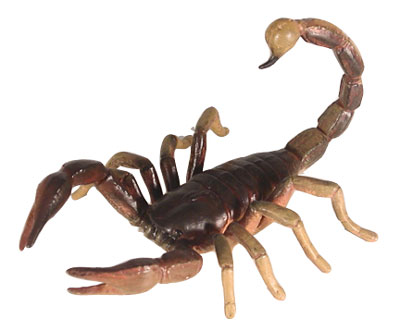Scorpions to be stressed-out in space
Researchers are going to use scorpions for studying the effects of stress on the nervous system

Animals have been continually used by researchers in various experiments aside from testing medicines and cosmetics. Animals are particularly good for studying the effects of hostile environment on living organisms e.g. zero gravity. Dogs, cats, chickens, worms and snails, even pregnant crickets have been launched into space for scientific purposes. Now the time has come for scorpions. Researchers are going to use scorpions for studying the effects of stress on the nervous system. 
Freshwater Cuban crayfish, thorn-back tritons, some microorganisms, and snails will be put into a special container along with the above Arthropoda. The container will be mounted on board the Russian space laboratory Foton-M whose launch is scheduled for May 31st. The Foton-M is not another space station, it is a unique space laboratory. It is capable of carrying 650 kilos of scientific equipment as payload. The laboratory should focus on research of liquid-state physics in gravity. 11 laboratory tests should be also carried out on board the station. The station is one of a kind and therefore many a researcher have been dreaming to take part in the Foton M-2 research program.
The scorpions were delivered to the Baikonur spaceport from the Netherlands by a special flight. “The space laboratory will carry more than 400 kilos of the ESA's equipment for doing research in the field of physics, biology and chemistry,” said Christian Feihtinger, the European Space Agency's chief coordinator of scientific programs for Russia.
Russian scientists also installed equipment on board the station. They are planning to conduct 4 experiments in fundamental biology during the station's 16-day mission. Part of the data produced during the mission should be relayed to ground laboratories in a real time mode. The Foton M-2 spacecraft will be put into space by the Russian booster Souyuz-U. The launch is slated for 16.00 Moscow time at the first launch pad of the Baikonur spaceport. On completion of the mission, a descent module containing the laboratory animals should return to Earth for further research.
Subscribe to Pravda.Ru Telegram channel, Facebook, RSS!


